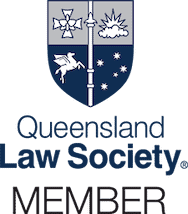Case note: Lee v RACQ Insurance Limited [2015] QSC 120
Overview
Mr Lien Yang-Lee (Applicant) made application to the Supreme Court of Queensland for an injunction to prevent compulsory third party (CTP) insurer, RACQ Insurance Limited (Respondent), from ceasing to provide rehabilitation, under the Motor Accident Insurance Act 1994 (Qld) (MAIA).
The Applicant was badly injured in a head-on motor vehicle accident. The Applicant brought a claim against his father, the alleged driver of the vehicle in which he was travelling. The Respondent was the CTP insurer of that vehicle.
Because of the Applicant’s youth and severe disabilities, the Respondent agreed to fund rehabilitation in accordance with section 39(1)(a)(iv) of the MAIA. The Respondent funded around $200,000 in rehabilitation.
The Respondent’s claim manager had concerns about the circumstances of the accident. The police report noted an issue as to who was driving. As police investigations advanced, it was revealed that blood all over the driver’s side airbag belonged to the Applicant – not his father. A late-comer to the scene saw the Applicant’s father attending to the Applicant. That bystander noticed that the Applicant had a lot of blood on his face.
The police concluded that the Applicant was driving the vehicle.
Issue
The issue to be determined was whether the Applicant should be granted an injunction to prevent the Respondent from refusing to fund rehabilitation. The evidence before the Court was hearsay.
Findings
In a judgment delivered on 7 May 2015, Dalton J found as follows:
- The Applicant demonstrated a case at first instance. The Applicant’s family had sworn affidavits that he was not driving the car.
- Further rehabilitation may assist the Applicant. That weighed most heavily against the money that would be lost to the Respondent, if the Respondent ultimately established fraud.
- The Application was successful and the Respondent was enjoined from reducing any rehabilitation under the MAIA.
Considerations
Despite ‘quite strong circumstantial evidence of fraud’ and the fact that funding of rehabilitation under the MAIA is voluntary, the Respondent couldn’t reduce its funding of rehabilitation to the Applicant. That rehabilitation was estimated at approximately $40,000 per month. The Applicant had no assets and offered no security to the Respondent.
Insurers should have regard to this judgment before agreeing to fund rehabilitation ‘on a without prejudice basis’ under the MAIA.
For a copy of the decision, click here.
How we can help
This article is not legal advice. If you require expert advice about a CTP claim, call Denning Insurance Law on (07) 3067 3025.
For information about the CTP claims process, see our article, Making a CTP Claim in Qld.
To find out more about our experienced team, click here.





